Elk have sniffed their way through too.
And not Tule Elk, Cervus canadensis nannodes, like I see on the rolling grasslands of the Chimineas Ranch in San Luis Obispo County. Nor Roosevelt Elk, Cervus canadensis roosevelti, the subspecies in the coastal ranges of northwest CA. But, instead, Rocky Mountain Elk, Cervus canadensis nelsoni, a subspecies (or race, if you prefer) from the actual Rocky Mountains, that probably would not traditionally have been found in southern California.
Which means, as I'm sure you can guess, there's a storied history to their "re-introduction."
In 1966, under a CDFG permit, 290 Rocky Mountain Elk were relocated from Yellowstone National Park to a too-small private game ranch in Kern County. Well, this ranch, like most, had a few fence issues, and today about 200 RME roam the Tehachapis.
But, whichever subspecies, it's cool to see a mammal that once covered the state in numbers as high as 500,000 (which, for reference, is the current estimated number of deer in CA).
In this case, 3 shaggy bulls - one a juvenile - stopped by the scent marking rock in late spring for a snort of the local eau d' wildlife...

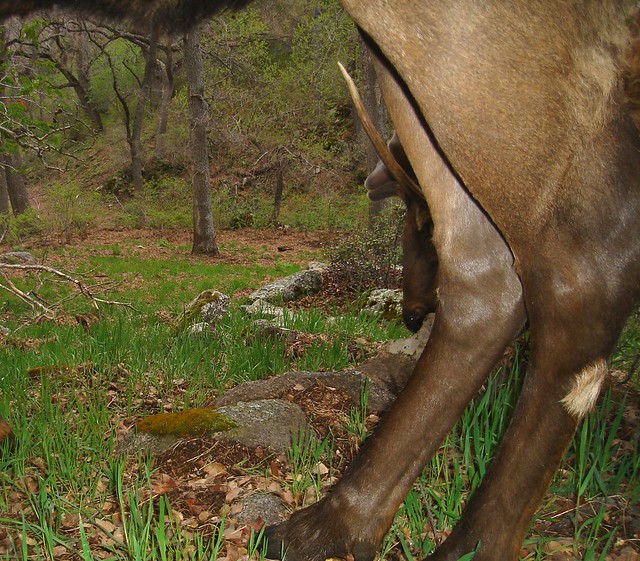
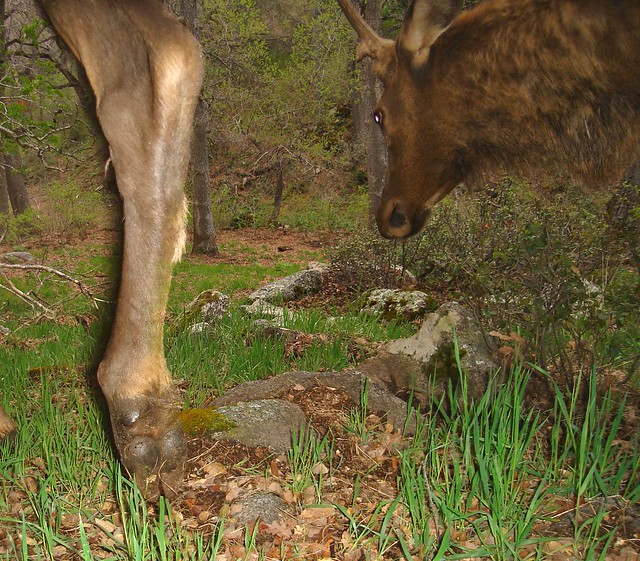

You'll notice that the juvenile still has polished antlers from last year, while the older stags have dropped theirs and are growing new ones for this season's rut-off.
As I learned from the ungulate-wise Codger, it's not uncommon for yearlings and young bulls to cast their antlers later than the old stags.
Nor is the following wanna-be-the-bully brandishing behavior of the same upstart, while his antlers are pointy and the big boy's are soft. Classic delusions of grandeur, says the Codge.

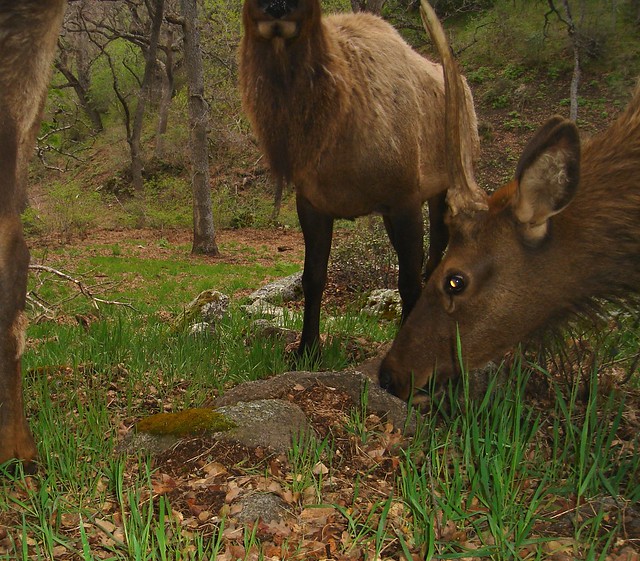
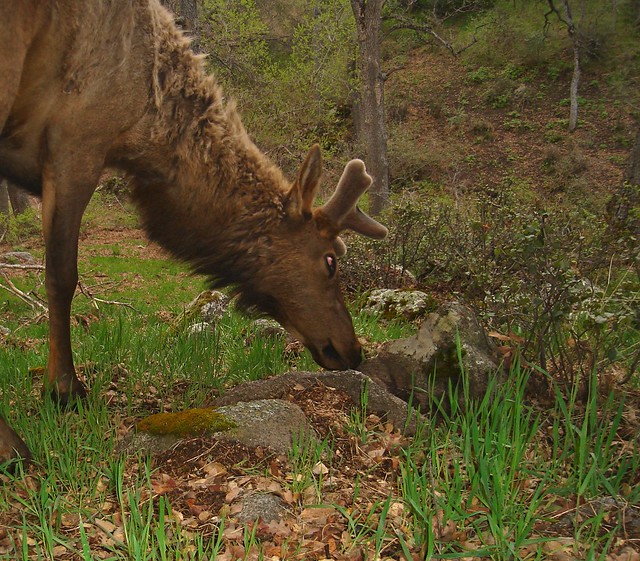
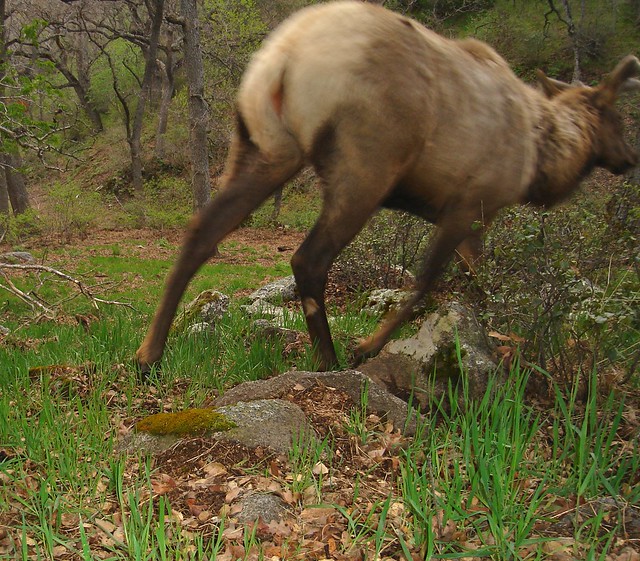
9 days later, and with a bit of snow on the ground (and lens), a couple of even bigger fellers happened along...


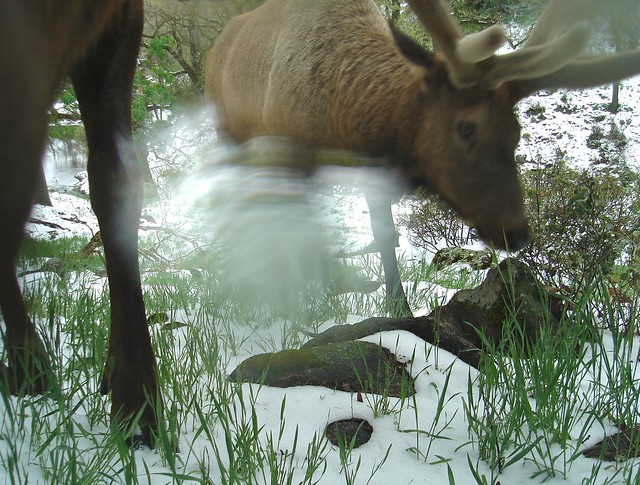
Rocky Mountain freshness roaming in California.
Hopefully without the bitter aftertaste.
====
References:
- Jameson & Peeters - Mammals of California
- California Department of Fish & Game (CDFG) - Tule Elk Range & Distribution
- California Department of Fish & Game (CDFG) - History of the Tejon Elk
- Wikipedia - Elk
- Wikipedia - Tule Elk
- Wikipedia - Roosevelt Elk
- Wikipedia - Rocky Mountain Elk
- LA Times - Rocky Mountain Elk Make Tracks to California
- Nature of a Man (this blog) - The Swine Parade
- Nature of a Man (this blog) - posts on cam trapping the Tehachapis

Ken
ReplyDeleteThis is wonderful. How did such a herd go unshot for so long. Glad to see them thriving, whichever subspecies.
D
Nine days from the first group of photos to the next. Could it be the same individuals whose antlers have grown in the meantime?
ReplyDeleteJohn - I think that's too short of a time for such growth, but it's a good question that I'll look into more.
ReplyDeleteMr. Smiley - they are most assuredly being hunted. But it's managed and quite limited.